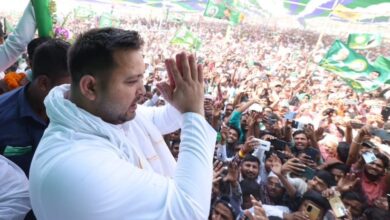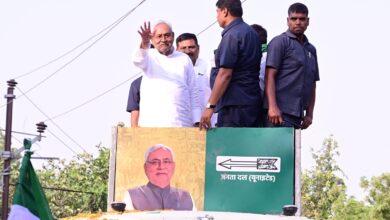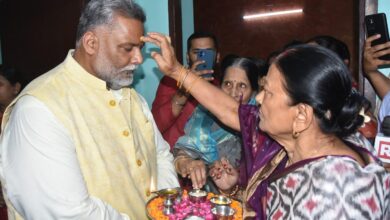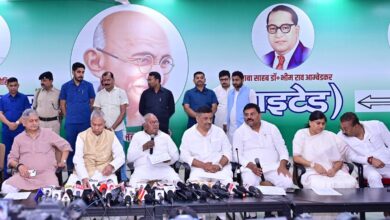Media freedom is under siege, says UN Secretary-General António Guterres on World Press Freedom Day
The World Press Freedom Day is celebrated on May 3
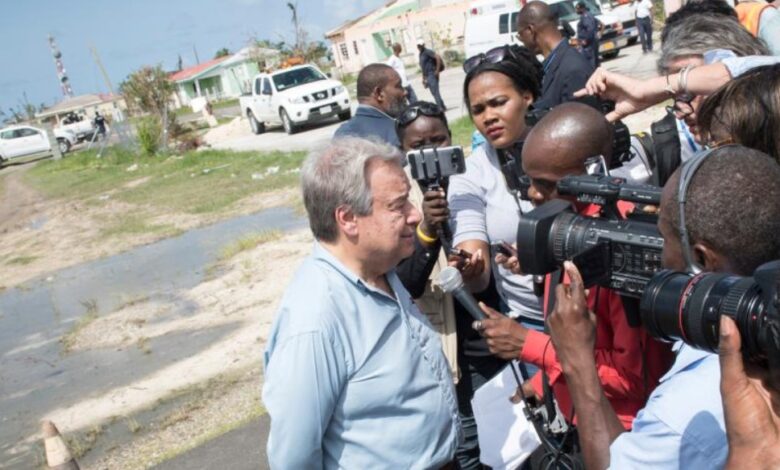
Media freedom is under siege and environmental journalism is becoming an increasingly dangerous profession as dozens of journalists covering illegal mining, logging, poaching and other environmental issues have been killed in recent decades, UN Secretary-General António Guterres has said in his message on the eve of the World Press Freedom Day.
The world is going through an unprecedented environmental emergency which poses an existential threat to this and future generations. People need to know about this — and journalists and media workers have a key role in informing and educating them, the UN Secretary-General said.
Local, national and global media outlets can highlight stories about the climate crisis, biodiversity loss and environmental injustice. Through their work, people come to understand the plight of our planet and are mobilized and empowered to take action for change, he said.
The World Press Freedom Day is celebrated on May 3.
Highlighting the work of journalists, the UN Secretary-General said: “Media workers also document environmental degradation. And they provide evidence of environmental vandalism that helps to hold those responsible to account. It is no surprise that some powerful people, companies and institutions will stop at nothing to prevent environmental journalists from doing their jobs.”
Media freedom is under siege. And environmental journalism is an increasingly dangerous profession. Dozens of journalists covering illegal mining, logging, poaching and other environmental issues have been killed in recent decades. In the vast majority of cases, no one has been held to account, he added.
The United Nations Educational, Scientific and Cultural Organization (UNESCO) reports that in the past 15 years, there have been some 750 attacks on journalists and news outlets reporting on environmental issues. And the frequency of such attacks is rising.
Legal processes are also misused to censor, silence, detain and harass environmental reporters, while a new era of climate disinformation focuses on undermining proven solutions, including renewable energy.
But environmental journalists are not the only ones at risk. Around the world, media workers are risking their lives trying to bring us news on everything from war to democracy. “I am shocked and appalled by the high number of journalists killed in Israeli military operations in Gaza,” Guterres said.
The United Nations recognizes the invaluable work of journalists and media professionals to ensure that the public is informed and engaged. Without facts, we cannot fight mis- and disinformation. Without accountability, we will not have strong policies in place. Without press freedom, we won’t have any freedom. A free press is not a choice, but a necessity.
Our World Press Freedom Day is very important. And so, I call on governments, the private sector and civil society to join us in reaffirming our commitment to safeguarding press freedom and the rights of journalists and media professionals around the world, the UN Secretary-General added.
Origin of the World Press Freedom Day
World Press Freedom Day was proclaimed by the UN General Assembly in December 1993, following the recommendation of UNESCO’s General Conference. Since then, 3 May, the anniversary of the Declaration of Windhoek is celebrated worldwide as World Press Freedom Day.
After 30 years, the historic connection made between the freedom to seek, impart and receive information and the public good remains as relevant as it was at the time of its signing. Special commemorations of the 30th anniversary are planned to take place during World Press Freedom Day International Conference.
May 3 acts as a reminder to governments of the need to respect their commitment to press freedom. It is also a day of reflection among media professionals about issues of press freedom and professional ethics. It is an opportunity to:
- celebrate the fundamental principles of press freedom;
- assess the state of press freedom throughout the world;
- defend the media from attacks on their independence;
- and pay tribute to journalists who have lost their lives in the line of duty.
In 2024, World Press Freedom Day is dedicated to the importance of journalism and freedom of expression in the context of the current global environmental crisis.
Awareness of all aspects of the global environmental crisis and its consequences is essential to build democratic societies. Journalistic work is indispensable for this purpose.
Journalists encounter significant challenges in seeking and disseminating information on contemporary issues, such as supply-chains problems, climate migration, extractive industries, illegal mining, pollution, poaching, animal trafficking, deforestation, or climate change. Ensuring the visibility of these issues is crucial for promoting peace and democratic values worldwide.
In the context of the world’s triple planetary crisis —climate change, biodiversity loss, and air pollution— dis-/misinformation campaigns challenge knowledge and scientific research methods. Attacks on the validity of science pose a serious threat to pluralistic and informed public debate. Indeed, misleading and false information about climate change can, in some cases, undermine international efforts to address them.
Dis-/misinformation about environmental issues can lead to a lack of public and political support for climate action, effective policies, and the protection of vulnerable communities affected by climate change, as well as of women and girls, as climate change tends to exacerbate existing inequalities.
To achieve sustainable development, it is necessary for journalists to report accurately, timely, and comprehensively on environmental issues and their consequences, as well as on possible solutions.
This requires a comprehensive strategy that includes:
- Preventing and protecting against crimes committed against journalists.
- Ensuring the rights to freedom of expression, freedom of scientific research, and access to key sources of information, in addition to combating dis-/misinformation through journalism.
- Promoting the plurality, diversity, and viability of media, especially regional, local, indigenous, and/or community-based media.
- Ensuring that the governance of digital platforms foster the transparency of technology companies, their accountability, due diligence, user empowerment, and content moderation and curation based on international human rights’ standards, as indicated in UNESCO’s Guidelines for the Governance of Digital Platforms.
- Promoting Media and Information Literacy programs to empower users with skills to engage and think critically in the digital environment.

